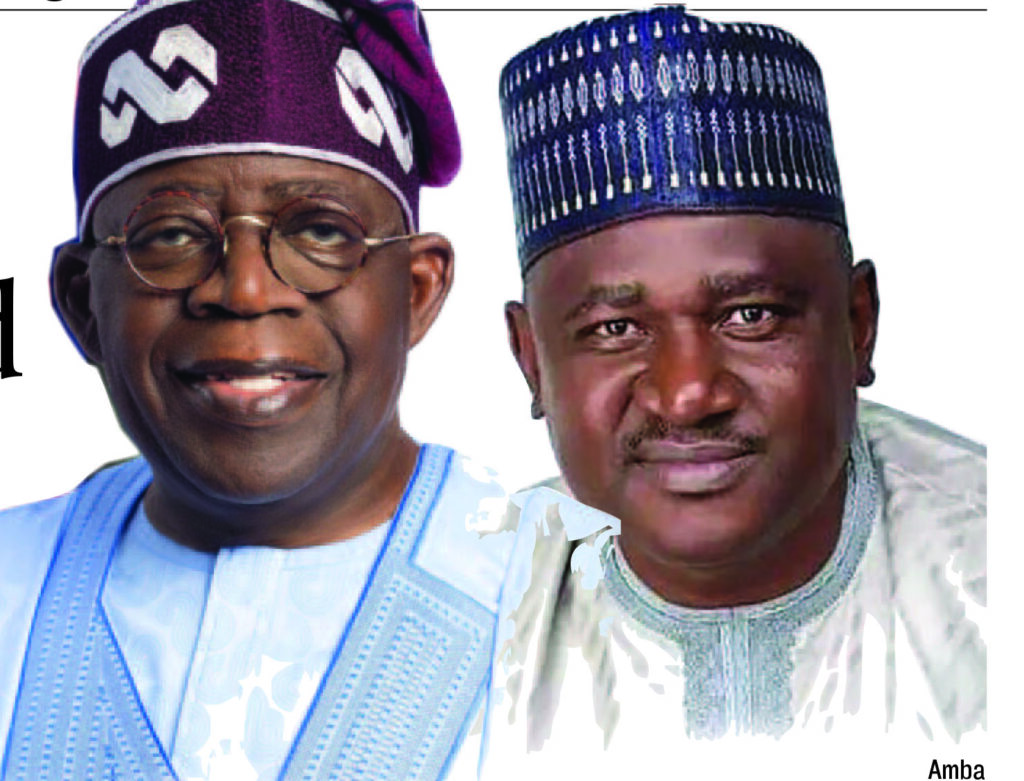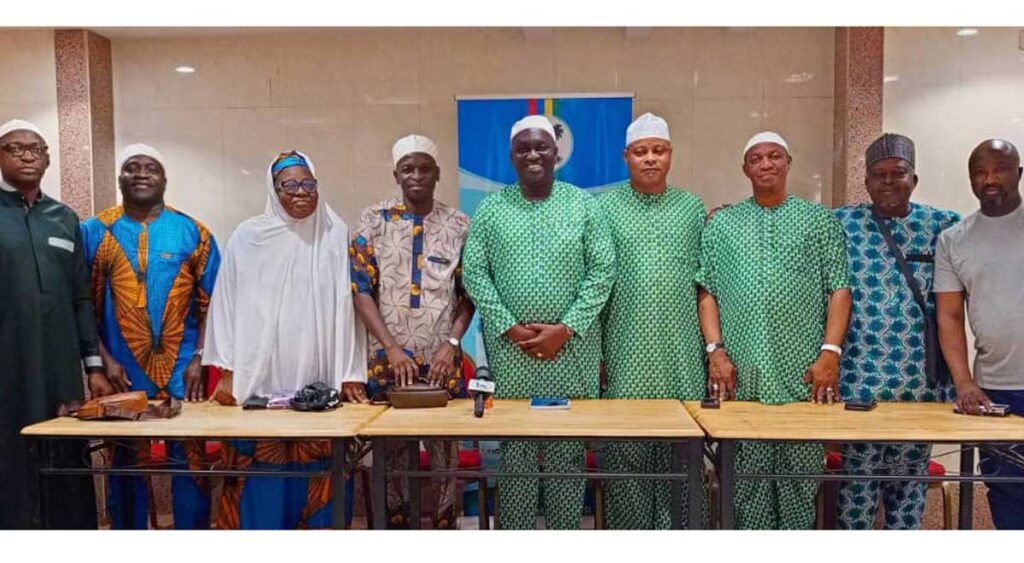
The World Teachers’ Day celebration in October 2020 brought a lot of smiles to the faces of Nigerian teachers following the pronouncement by then President Muhammadu Buhari on the approval of a special salary scale. But three years down the line, pledges of better pay and welfare are still unkept, and much to the pains of the teaching profession, IYABO LAWAL reports.
Nigerian teachers looking forward to enjoying their new salary structure, increased allowances and other incentives promised by immediate past President Muhammadu Buhari may have to wait much longer as bureaucracy, lack of political will and paucity of funds have stalled implementation for over three years.
Buhari, in a move to address issues relating to the quality of learning and welfare, had approved a special Teachers Salary Scale (TSS), during the commemoration of World Teachers’ Day in October 2020.
He also approved a special pension scheme to enable the profession to retain its experienced talents, while extending teachers’ retirement age to 65 years and their duration of service from 35 to 40 years.
Besides, the former President included building low-cost houses for teachers in rural areas, and sponsorship to at least one refresher training per annum to benchmark best practices for improved teaching and learning.
He also promised an expansion of the annual presidential teachers and schools awards, payment of stipends to Bachelor of Education (B.Ed) students and automatic employment after graduation.
These promises were all in a bid to attract the best brains and improve the sector.
The new salary structure is expected to make the least paid teacher in the public service earn about N150,000 monthly, as against the current salary of about N49,000.
A month after the pronouncement, the national implementation committee on the revitalisation and repositioning of the teaching profession was inaugurated. It was charged to focus on specific areas of intervention as approved by the president and submit its report after three months.
The news of the approval was received with cheers as it was hoped to be a start in the journey of rebuilding Nigeria’s education system, which is in a deplorable state.
Nigeria has also not done well in global rankings, as it ranked 161 in the 2022 United Nations Development Programme’s ranking of countries based on the Human Development Index (HDI).
Besides, Nigeria and other Sub-Saharan African countries face the largest teacher gap: it will need a total of 17 million primary and secondary school teachers by 2030.
It is also the region with the fastest-growing school-age population. It is already struggling to keep up with demand: more than 70 per cent of the region’s countries face acute shortages of primary school teachers, rising to 90 per cent for secondary education.
In the next six years, countries must recruit almost 69 million teachers to provide every child with primary and secondary education: 24.4 million primary school teachers and 44.4 million secondary school teachers.
Sustainable Development Goal 4 (SDG 4) demands inclusive and equitable quality education for all by 2030. The needs are urgent, with an estimated 263 million children and youth still out of primary and secondary school globally.
SDG 4 includes a specific call for more qualified teachers and more support from the international community for teacher training in developing countries.
Nigerian teachers – especially those in primary and secondary schools – are poorly remunerated and work under some of the worst conditions imaginable.
Little wonder, government-owned and many private schools are losing their best teachers to other sectors. The teachers feel ill-motivated and least appreciated.
According to the American National Education Association, depending on the state, high school teachers in the U.S. get as much as $48,631. While the best-paid 10 per cent in the field made approximately $86,720, the bottom 10 per cent made $37,230.
According to the group, compensation for American teachers is typically based on years of experience and educational level. Newly qualified teachers in England and Wales, for example, start on the main salary scale, which rises incrementally from £22,023 to £32,187, though salaries may be higher depending on location. Salaries on the main scale in Northern Ireland are said to range from £21,804 to £31,868. High school teachers in South Africa earn an average of R166,068 per year.
Buhari, after the announcement of the new wage increase, directed the then minister of education, Adamu Adamu, to ensure an accelerated implementation of the policies and measures in collaboration with states and local governments, to enthrone a culture of competence, discipline, dedication, increased learning outcomes and better service delivery in the sector.
However, three years down the line, most of the promises made by the government are yet to manifest.
Findings showed that no teacher across Nigeria has received any of those benefits, and is already starting to lose hope.
The teachers appealed to President Bola Tinubu to direct the immediate implementation of the new enhanced salary structure, saying doing so would go a long way in boosting their morale, and also attract quality hands into the teaching profession.
The national president, Nigeria Union of Teachers (NUT), Audu Amba, said so many incentives were rolled out, but the only pronouncement that kick-started both at the centre and to an extent, at the level of states, was the retirement age for teachers.
“As I speak, a good number of states are yet to even key into this retirement age for teachers. Up till now, none of the other incentives have gotten across to Nigerian teachers. Most of the laudable promises are yet to get across to our teeming teachers,” he added.
He lamented that the Nigerian education system is faced with multiple challenges, including poor salaries, unpaid allowances, and infrastructural decay, noting that efforts towards addressing them have only met many frustrations.
For instance, Amba said the “harmonised retirement age for teachers in Nigeria Act, 2022,” has been implemented by only 14 states and the Federal Capital Territory (FCT), Abuja, for their teachers.
“We hereby call on President Tinubu to activate the teacher policy reforms of the past administration by ensuring full implementation of teacher incentives approved in 2020.
“We also call on state governments, who have not implemented the harmonised retirement age for teachers to do so without further delay, as this would ensure greater service delivery and productivity in the sector,” he stated.
The NUT president warned that the challenge of attracting and retaining young. dedicated persons in the teaching profession would remain unabated if the living and working conditions of educators are not given due attention and addressed in the interest of teachers’ effectiveness and greater service delivery.
He noted that teachers not only work under deplorable conditions, they often suffer public disdain, disregard and are denied their due status and rightful place in society.
This, Amba noted, negatively affects the needed attraction and retention of new professionals in the teaching service.
The president also decried the infrastructural decay in schools, growing insecurity, and non-payment of allowances, among several others.
“It is imperative, therefore, that the government takes appropriate steps to develop policies and adopt measures that would accord teachers their due regard and respect. Essentially, it should be recognised that the proper status of teachers and due public regard for the profession of teaching are of major importance for the full realisation of educational aims and objectives,” Amba urged.
An educationist, Patrick Umoh, said getting the bill passed into law or formulating policies is not the problem, as the major hurdle lies in the actual implementation, especially at the sub-national level.
Umoh noted that the welfare of teachers has remained a recurring decimal in the country, and as a result, the system remained unattractive to the best brains.
“In most cases, only those who are frustrated or have nothing to do, pick up teaching jobs. This has led to a deplorable education standard,” Umoh stated.
Finalist of UNESCO’s Global Teacher Prize and 2019 winner of Maltina Teacher of the Year, Olasunkanmi Opeifa, appealed to the government to expedite its plan to restructure teachers’ salary scale as announced in 2020.
According to him, the implementation of the new salary structure would serve as a reward for old teachers who have helped mould the country’s upcoming leaders and motivation for the young ones.
“It will also place us at par financially with our colleagues in developed countries. Most of us would still use our new financial status to enhance teaching and learning, and better the quality of education by acquiring personal technological gadgets. We are that selfless; we are teachers,” he said.
While noting that the new salary scale would not just give financial relief but psycho-social upliftment, Opeifa said teachers would be able to achieve their dreams with little stress and give their children a good upbringing.
“Many teachers are mentally ill (without knowing) because of their financial status; I strongly appeal to the government that the implementation should not be delayed any further.”
Another teacher, Josephine Olaojo, said she was happy after the pronouncement, especially with the directive that it was with immediate effect, but lamented that the policy was yet to be implemented three years later.
She said: “I was hopeful and believed that we would get a lift financially, but up till now, we are not sure of what is going on, but I pray it comes soon so that we can appreciate the government more.”
NUT Secretary, Dr Mike Ene, while appealing to President Tinubu to ensure that the outlined welfare packages are implemented, said
some of the issues only require policy direction, and as such, should not be delayed.
For instance, under the housing scheme for teachers, Ene said the Federal Government could come up with a policy pronouncement on where it would be domesticated, which can be in the states, while the FG would come up with a prototype for them to copy.”
“An inter-ministerial committee was set up by the Federal Ministry of Education, comprising the Federal Ministry of Finance, Ministry of Justice and National Incomes, Salaries and Wages Commission, while directors from various states were brought in to determine what each state would pay, while the wages commission was mandated to work on the package.
But as we speak, that was the last we heard of the matter until the Buhari administration left office,” Ene said.
He said another key issue the government should implement was the promise to raise the bar of employment for teachers, such that if university graduates are placed on grade level eight, those who studied education would be placed on grade level nine, to serve as an incentive.
He said it was unfortunate that after several years, the policy was not implemented either at the federal or state level, despite efforts made by the leadership of NUT to ensure its enforcement.
“What we are saying, therefore, is that governments at all levels, whether at the local, state or federal level, should not play politics with education,” Ene said.
But the Permanent Secretary, Ministry of Education, Andrew Adejo, said the government was implementing the promises systematically.
He said when the Federal Government approved the revitalisation policy for teachers, they were about 11 items out of which six have been addressed.
“One, you are all aware of the elongation of years of service; there was also a scholarship for every student studying education in our universities, that is being implemented partially. We have written to the presidency, so scholarship is partially ongoing, others will be addressed in due course,” he added.













